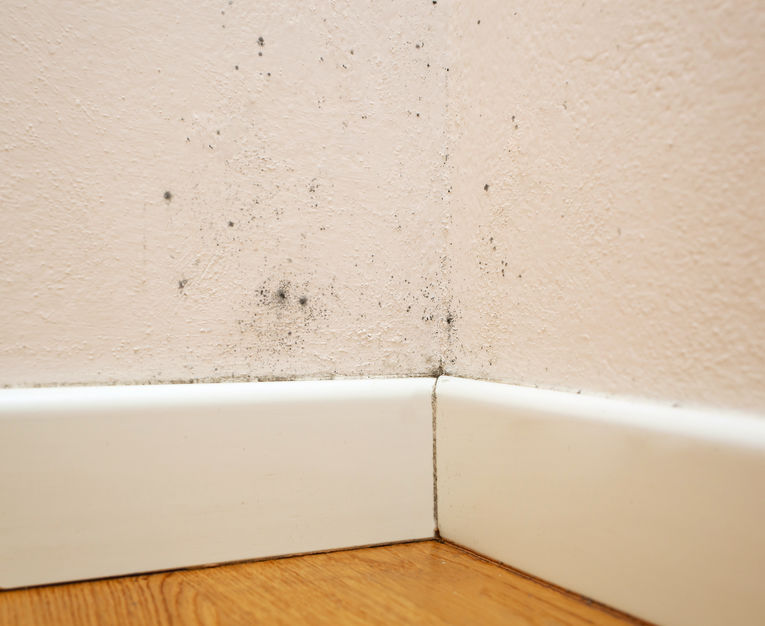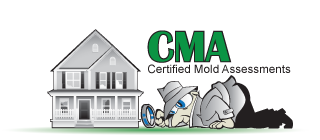 Mold thrives well in damp conditions and can grow rapidly when bonded with moisture on a flooded carpet, humid wall, or damp upholstery. Mold can cause health problems such as allergic reactions, respiratory infections and asthma attacks, which can be fatal for individuals with a weak immune system. As long as mold starts to grow in any kind of porous material, then it becomes a problem for everyone.
Mold thrives well in damp conditions and can grow rapidly when bonded with moisture on a flooded carpet, humid wall, or damp upholstery. Mold can cause health problems such as allergic reactions, respiratory infections and asthma attacks, which can be fatal for individuals with a weak immune system. As long as mold starts to grow in any kind of porous material, then it becomes a problem for everyone.
Some people live with mold but do not often realize it until they start noticing a musty smell or experience mold symptoms. If you are purchasing a home with mold or you already have a mold problem, you may be concerned about its potential dangers and if it is safe for you and your family. This article discusses whether one can live in a house with mold and what you can do to minimize the problem.
Living in a House with a Mold Problem
Different areas in a home can provide ideal conditions for mold to grow. It is possible to live in a home with mold if it is contained in a particular area during remediation. Encapsulation is a mold remediation procedure that is done when the moldy material cannot be replaced or removed. This means that mold will still be present but sealed off completely from doing any harm. However, it is quite risky living in a home with visible mold since you are exposed to mold spores that can become airborne when blown around by the gush of wind from your windows or HVAC systems.
If mold is left unattended, it can spread to other areas of your home causing serious health problems. There are circumstances where people live with mold in their homes but have no idea of its presence. The side effects of mold may not be realized in their inactive form but can still be a problem for people with high sensitivity to allergies or have a weak immune system.
How Long Can One Live in a House with Mold?
- Children and the Elderly
An adult with a healthy immune system can only experience minor allergic reactions that can only worsen if they are exposed for a prolonged period. However, infants or individuals with an immune-deficiency disease may suffer severe allergic reactions that could be life threatening. Since there are many variables associated with each person, it is quite difficult to determine how long one can live in a house with mold since no amount of mold that can be termed as safe.
- Individual Sensitivities
If you suffer from allergies or asthma, then you are more likely to experience the symptoms of mold than a normal person with no serious medical condition is. Individuals with high sensitivity to mold may sneeze or cough frequently when exposed to mold even if it is present in small amounts. People with a strong immune system may not experience any symptoms if they are less sensitive to allergic reactions caused by mold but they can only last for a short time after prolonged exposure.
- Type of Mold
Many strains of mold can determine how long a person can live in a house with mold. For example, Cladosporium is an allergic strain of mold that may only affect people suffering from allergies. However, Aspergillus and Stachybotrys are toxic strains that may lead to severe respiratory illnesses when you are exposed to mold for a long period. Since only a mold expert can determine the type of mold in your home, it is quite difficult to determine the type of mold strain in your home. The only way you can deal with it is through mold remediation.
How to Eliminate Mold Problems
First, it is important to decide whether you should remove mold on your own or hire professionals. While DIY projects are ideal for small areas, a mold problem that covers large areas in a home are best left for professionals as they have the right tools and equipment to eliminate a mold problem. It is important to cut off any sources of moisture or leaks as they create a perfect condition for mold growth. To prevent recurring mold, you need to watch out for future water damage, proper ventilation, and keep your home clean and dry.
It is possible to live in a home with mold if the moldy materials have been encapsulated as it prevents mold spores from becoming airborne. However, it is quite difficult to live in a house with mold if it is left unattended as it poses a significant risk to everyone. If you notice any signs or symptoms of mold then it is important to address it sooner to before it makes your home unlivable or turns your prized possessions into musty relics.
